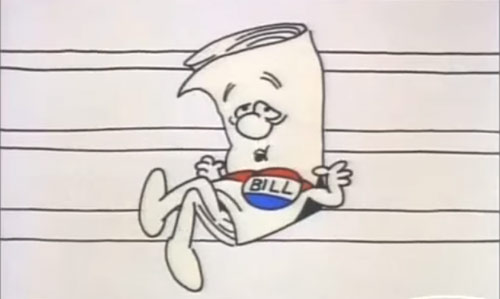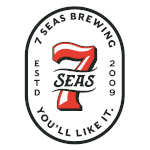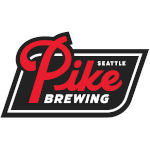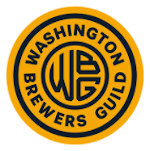The breweries you love are about to get a big tax break. The Craft Beverage Modernization and Tax Reform Act was just one small part of the recently passed, 1,100-page Tax Cut and Jobs Act, but it is expected to have a big impact on the craft brewing industry.
Every brewery in the nation pays a federal excise tax on the beer it produces. This is in addition to any state and local taxes. Currently, craft breweries pay a rate of $7 per barrel. A barrel, the standard unit of measurement in the American brewing industry, is 31 gallons. There is a different rate for the mega breweries, but we aren’t talking about those. Under the new tax structure, craft breweries will pay $3.50 per barrel, half of the current rate.
The craft beer industry, led by the Brewers Association, has been working on this tax reform initiative for the better part of a decade. At its core, the proposal has not changed in all that time, whether it be in the form of a House Resolution, a Senate Bill or, as it is now, a rider on a much bigger bill like the one recently passed by Congress.
How We Got Here
The Washington Beer Blog has chronicled the life of this proposal for nearly eight years. Each year it gained some support in Congress before failing to make it to the floor for a vote. The next year, the same thing would happen again. Although many members of Congress seemed to appreciate the argument for it, the bill did not garner enough interest or support to pass on its own or even make it to a vote. This is not unusual.
The support enjoyed by the Craft Beverage Modernization and Tax Reform Act was based on an understanding of the issue and how it impacted real Americans. In other words, that kind of support and $5.00 will buy you a pint of beer at the local pub, but it isn’t the kind of support that is going to get a bill through Congress. It didn’t. It got through Congress and became law because of the larger bill to which it was attached. Again, this is not unusual.
“For the better part of a decade, the Brewers Association has played a central role advocating for tax relief for small brewers,” says Bob Pease, president and CEO of the Brewers Association—the not-for-profit trade association dedicated to small and independent craft brewers. “We appreciate all the support and hard work from every corner of the country that brought this to fruition. This is a significant step forward representing over $142 million in annual savings for small brewers.”
In the end, we will never know if members of Congress even knew that this beer tax reform was part of the 1,100-page tax bill. Having read it here, I’d guess the Craft Beverage Modernization and Tax Reform Act made up a total of maybe three to five pages of the 1,100 page bill. It would have been easy to miss, but it was there.
Why Lower Taxes on Breweries?
Back in 2014, a Harvard economist released a study that made a compelling case for the proposal, asserting that reducing the tax would actually increase tax revenue because of industry growth. Of course, his prediction was based on the assumption that breweries would reinvest the savings, create new jobs and increase overall taxable revenues.
There’s no guarantee that such reinvestment will happen uniformly across the industry, and nobody can tell brewery owners what to do with their profits, but economic stimulus was the supposition upon which supporters of the proposal based their opinion.
What Does it Mean?
Here’s a quick breakdown of how the new tax rate will impact your favorite brewery:
- A brewery that produces 1,000 barrels per year would save $3,500 per year. We have a lot of breweries that size and smaller in Washington. In fact, the majority of breweries fall into this category.
- A brewery that produces 20,000 barrels per year would save $70,000 per year. In Washington, there are only a few of those. According to 2016 production numbers, only six Washington breweries produced more than 20,000 barrels.
- A brewery that makes 60,000 barrels per year would save $210,000. In Washington, you can count them on one hand.
- In Washington, where we now have nearly 400 breweries, the average is about 1,600 barrels per year. This is based on 2016 production numbers. On average, each Washington brewery will save $5,600.
It gets complicated, but here’s the exact breakdown. The federal excise tax on beer will be reduced to $3.50 per barrel (from $7 per barrel) on the first 60,000 barrels for domestic brewers producing less than 2 million barrels annually, and reduced to $16 per barrel (from $18 per barrel) on the first 6 million barrels for all other brewers and all beer importers. So, a brewery like Elysian only enjoys the big reduction on the first 60,000 barrels it produces and pays the higher rate on the remainder. Same thing for bigger craft breweries like Sierra Nevada, Deschutes, Stone, New Belgium and so on. The biggest benefit is to “small” breweries. (I use quotes because small is a relative term.)
Who’s Happy, Who’s Not
“This is a monumental day for small and independent craft brewers,” says Bob Pease of the Brewers Association. “America’s small, Main Street brewers—6,000 strong and located in every state and virtually every congressional district in the country—are incredibly pleased Congress has recognized that they have great growth potential. Our expectation is that small brewers will use their savings related to the recalibration of the federal excise tax on beer to invest in their breweries, expand their operations, create more jobs and hire more American workers. We are very appreciative that Congress has enacted these bipartisan, strongly supported measures.”
According to said Sara Nelson, Co-Founder/Owner of Fremont Brewing, “This isn’t just a major victory for small brewers, it’s also a huge win for local economies across the county. Small brewers are the growth engine of the industry and they’ll use the additional capital to expand production and hire more people. That’s why this bill had such strong bipartisan support and most of Washington State’s delegation signed on as co-sponsors.”
“I don’t know exactly what Fremont Brewing will do with the extra cash but one goal we’ve had for a long time is to extend our health insurance coverage to our employees’ families and this will make it easier to offer that additional benefit. This recalibration will sunset in two years unless Congress extends it but it’s too soon to think about that. Right now it’s time to celebrate! As FDR said at the end of Prohibition, ‘I think this would be a good time for a beer.'”
To be fair, not all brewery owners supported this proposal. In confidence, one brewery owner told me this: “If it passes, I’d save about $3,500 a year; the bigger brewery down the street would save $100,000 a year. Sure, I could find a way to use $3,500, but $100,000 will just help them further kick my butt. It costs me $3,500 every time the dishwasher in the taproom breaks down, but with $100,000 that bigger brewery can buy more tanks, hire more sales people, upgrade their packaging system.”
Whether that particular brewery owner supports it or not, it’s time to decide how to use that $3,500. No matter how we got here, the new tax rate is about to become reality.

































